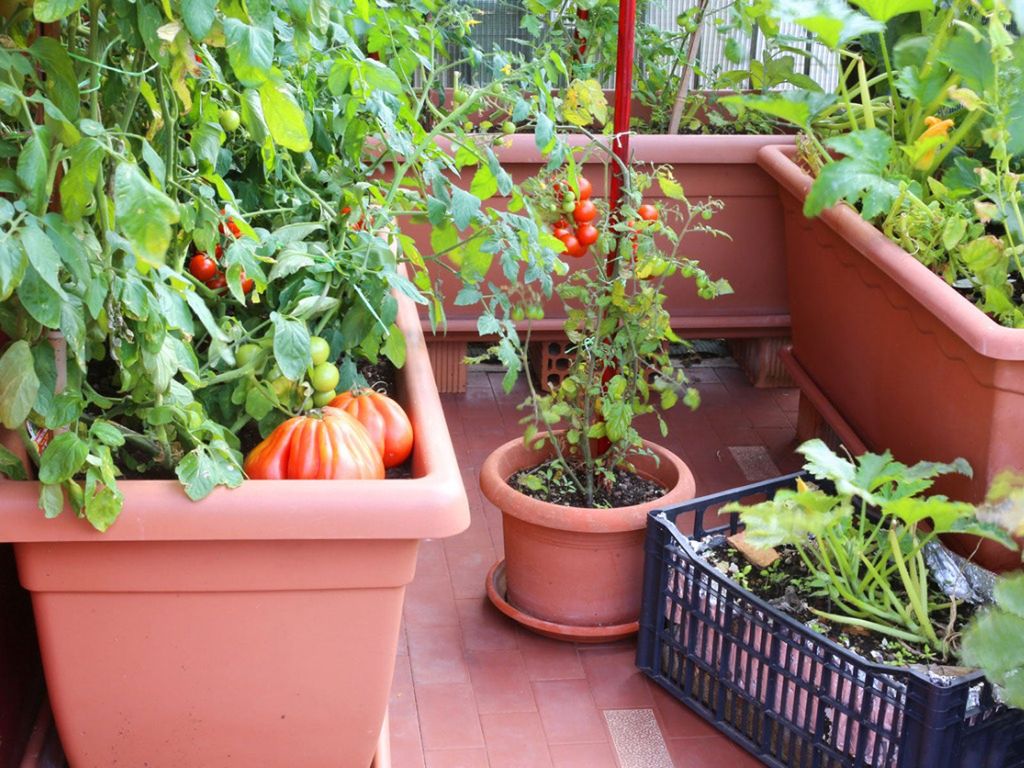Grow the Best Winter Vegetables in Container Gardens

Are you dreaming of a winter harvest but think your small balcony or patio can't handle it? Think again! Container gardening opens up a world of possibilities for growing the best winter vegetables, even in the tightest spaces. Imagine transforming your balcony into a thriving, edible oasis, brimming with cold-hardy vegetables that love the chill. Let's dive in and explore how you can create a winter wonderland of fresh produce right outside your door.
Why Choose Container Gardening for Winter Vegetables?
Container gardening is the perfect solution for small-space gardening enthusiasts. It allows you to control the soil quality, drainage, and even the microclimate around your plants. Plus, it's incredibly versatile—you can move your containers around to catch the best light or protect them from harsh weather. But what makes it truly special is the joy of stepping outside on a crisp winter morning to harvest fresh, homegrown vegetables.
Best Winter Vegetables for Container Gardens
Cold-Hardy Greens
Spinach and kale are superstars when it comes to cold-hardy vegetables. They thrive in cooler temperatures and can even become sweeter after a light frost. Choose compact varieties like 'Space' spinach or 'Dwarf Blue Scotch' kale, which are perfect for container gardening.

Root Vegetables
Carrots and radishes are excellent choices for winter container gardens. Opt for smaller, quick-growing varieties like 'Paris Market' carrots or 'Cherry Belle' radishes. These compact plants are ideal for shallow containers and provide a satisfying winter harvest.
Alliums
Garlic and onions are surprisingly easy to grow in containers. Plant garlic cloves in the fall for a spring harvest, or choose green onions for a continuous supply throughout the winter. These versatile vegetables add flavor to any dish and are a must-have in your container garden.
Brassicas
Cabbage and broccoli are nutrient-packed and love the cool weather. Look for dwarf varieties like 'Gonzales' cabbage or 'De Cicco' broccoli, which are well-suited for container gardening. These plants not only provide a delicious winter harvest but also add visual interest to your balcony garden.
Tips for Successful Winter Container Gardening
Choose the Right Containers
Select containers that are at least 12 inches deep to accommodate root growth. Ensure they have good drainage to prevent waterlogging, which can be fatal for your plants. Materials like plastic, wood, or ceramic are all suitable, but avoid dark colors that can overheat in the sun.
Soil and Fertilizer
Use a high-quality potting mix designed for containers. This will provide the right balance of nutrients and drainage. Supplement with a balanced, slow-release fertilizer to keep your plants healthy and productive throughout the winter.
Light and Temperature
Most winter vegetables prefer full sun, so place your containers in a spot that gets at least 6 hours of sunlight daily. Protect your plants from extreme cold by moving them to a sheltered area or covering them with a frost cloth.
Watering
Water your container garden regularly, but be mindful of overwatering. Winter weather can be unpredictable, so check the soil moisture frequently. A good rule of thumb is to water when the top inch of soil feels dry.
Creative Container Garden Ideas
Vertical Gardening
Maximize your space by growing vertically. Use trellises, wall pockets, or hanging baskets to create a lush, vertical garden. This not only saves space but also adds a stunning visual element to your balcony.
Repurposed Containers
Get creative with your containers. Old boots, buckets, or even repurposed furniture can make charming planters. Just ensure they have adequate drainage and are deep enough for your chosen vegetables.
Companion Planting
Combine different plants in the same container to create a harmonious ecosystem. For example, pair carrots with radishes or kale with onions. This not only saves space but also enhances the health and productivity of your plants.
Conclusion
Growing the best winter vegetables in container gardens is not only possible but also incredibly rewarding. With the right choices of cold-hardy vegetables and a bit of planning, you can transform your balcony into a thriving, edible oasis. Embrace the joy of small-space gardening and enjoy a winter harvest that's as fresh as it is satisfying.
FAQs
What are the best containers for winter vegetables? Containers should be at least 12 inches deep with good drainage. Materials like plastic, wood, or ceramic are suitable, but avoid dark colors that can overheat.
How often should I water my winter container garden? Water when the top inch of soil feels dry. Winter weather can be unpredictable, so check soil moisture frequently to avoid overwatering.
Can I grow winter vegetables in shallow containers? Yes, for shallow-rooted vegetables like radishes and lettuce. However, deeper-rooted vegetables like carrots and broccoli require deeper containers.
How do I protect my container garden from extreme cold? Move your containers to a sheltered area or cover them with a frost cloth. Some cold-hardy vegetables can tolerate light frosts, but extreme cold can be damaging.
What are some creative ways to maximize space in a container garden? Use vertical gardening techniques with trellises or wall pockets. Repurpose old items as containers and practice companion planting to make the most of your space.

Embrace the challenge and joy of growing the best winter vegetables in container gardens. Your balcony can become a haven of fresh, homegrown produce, even in the chilliest months. Happy gardening!
0 Response to "Grow the Best Winter Vegetables in Container Gardens"
Post a Comment